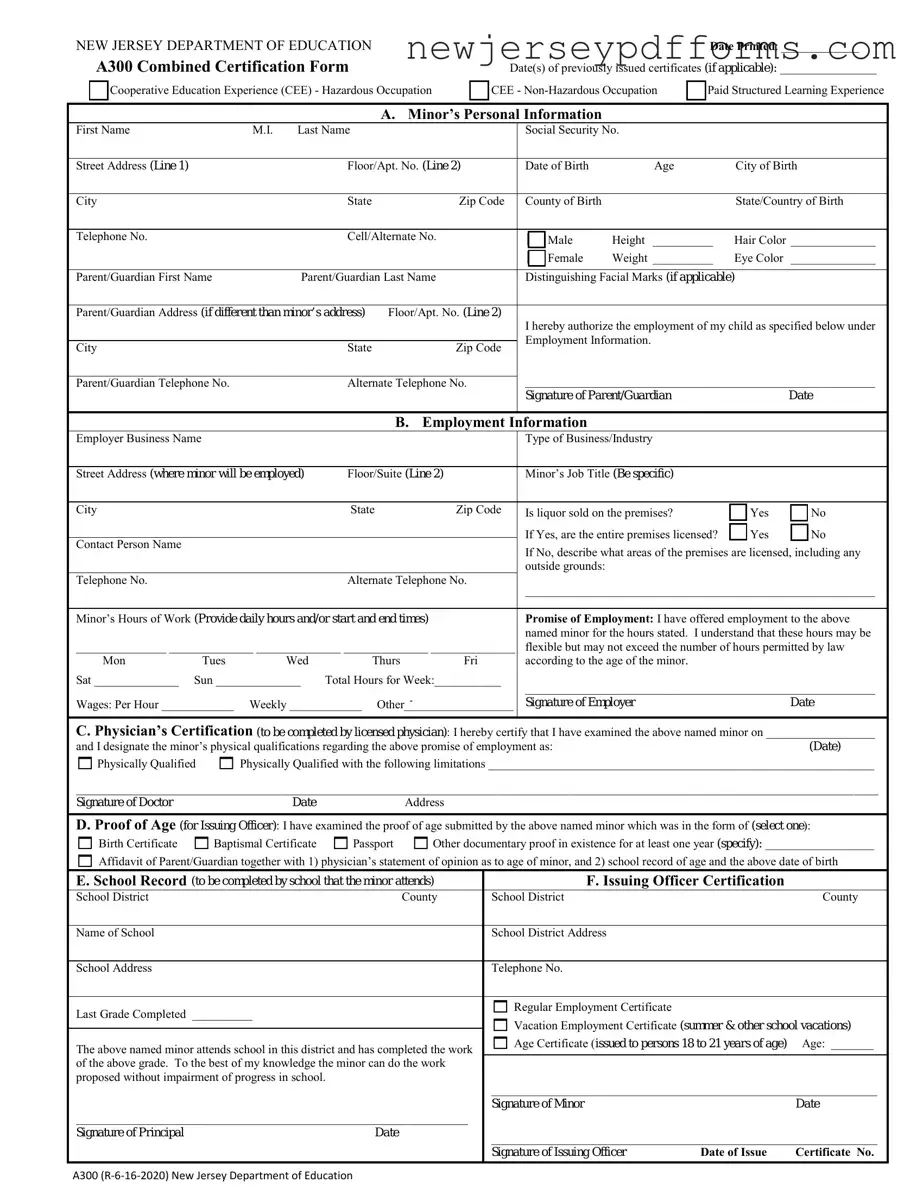What is the NJ A300 form?
The NJ A300 form is a combined certification form used for minors seeking employment in New Jersey. It includes sections for personal information, employment details, physician certification, proof of age, and school records. This form ensures that minors meet the legal requirements for working and that their employment does not interfere with their education.
Who needs to complete the NJ A300 form?
Minors aged 14 to 17 who wish to work in New Jersey must complete the NJ A300 form. The form requires input from the minor, their parent or guardian, their employer, and a licensed physician. This collaborative effort ensures that all necessary information is collected to meet state regulations.
What information is required in Section A?
Section A collects personal information about the minor, including their name, social security number, address, date of birth, and contact details. Additionally, it requires details about the parent or guardian, such as their name and contact information, along with a signature to authorize the minor’s employment.
What does Section B cover?
Section B is dedicated to employment information. It includes the employer's business name, type of business, the minor's job title, and work hours. The employer must sign this section to confirm the promise of employment and ensure that the hours comply with state labor laws.
How is the physician's certification completed?
In Section C, a licensed physician must examine the minor and certify their physical qualifications for the job. The physician indicates whether the minor is physically qualified or if there are any limitations. This section ensures that the minor is fit for the work they will be doing.
What proof of age is needed?
Section D requires proof of age, which can be a birth certificate, baptismal certificate, passport, or other accepted documentation. This is crucial for verifying that the minor meets the age requirements for employment. If the school has a record on file, this step may be simplified.
What role does the school play in the process?
Sections E and F involve the school district's certification. The school must review the completed form to ensure that the minor’s employment will not hinder their education. A designated official will sign the form, allowing the minor to receive their working papers.
What are the work hour restrictions for minors?
Work hour restrictions vary by age. For 14 and 15-year-olds, the limits include no more than 3 hours on a school day and 18 hours in a school week. For 16 and 17-year-olds, the maximum is 8 hours a day and 40 hours a week. All minors must also have breaks and cannot work more than 6 consecutive days.
Where can I find more information about prohibited jobs for minors?
To learn about jobs that are prohibited for minors, visit the New Jersey Department of Labor and Workforce Development’s website. They provide a comprehensive list of hazardous occupations that minors cannot perform based on their age.

